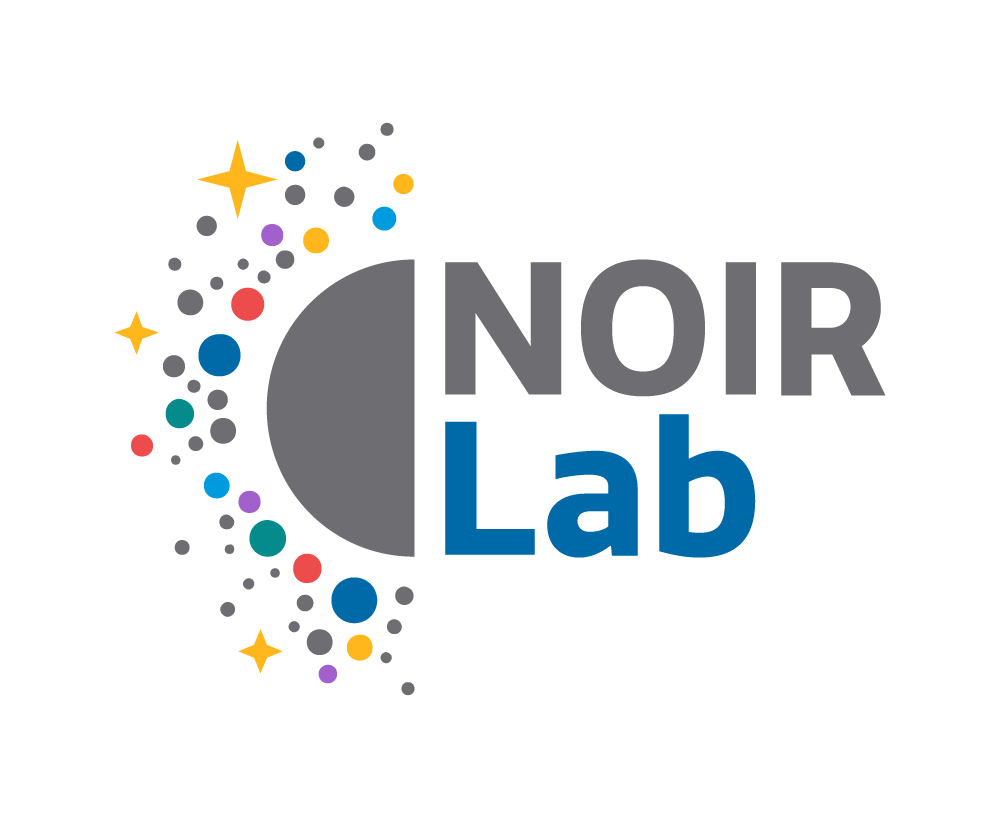June Issue of the NOIRLab Mirror Newsletter Highlights News and Milestones for the NOIRLab Community
7 June 2024
The seventh (June 2024) edition of The NOIRLab Mirror newsletter is now available. This biannual publication focuses on news for the NOIRLab community and showcases the science, technology, and developments across the five NOIRLab Programs: the Community Science and Data Center (CSDC), Cerro Tololo Inter-American Observatory (CTIO), the International Gemini Observatory, Kitt Peak National Observatory (KPNO), and Vera C. Rubin Observatory operations.
The June 2024 issue features a collection of science highlights spanning the breadth of NOIRLab facilities and Programs, an illuminating story on the history of the NOIRLab Time Allocation Committee, a look at how NOIRLab’s 4-meter telescopes will conduct future surveys to further constrain measurements of dark energy and dark matter, an overview of the important role that citizen science projects will play in exploring the massive influx of data expected with Vera C. Rubin’s Legacy Survey of Space and Time, a discussion on the impact of NOIRLab’s education and outreach programs, and much more.
The NOIRLab Mirror is free and notifications of the release of future electronic issues can be requested here. A free subscription for printed copies can also be requested by libraries and research institutions.
More information
NSF NOIRLab (U.S. National Science Foundation National Optical-Infrared Astronomy Research Laboratory), the U.S. center for ground-based optical-infrared astronomy, operates the International Gemini Observatory (a facility of NSF, NRC–Canada, ANID–Chile, MCTIC–Brazil, MINCyT–Argentina, and KASI–Republic of Korea), Kitt Peak National Observatory (KPNO), Cerro Tololo Inter-American Observatory (CTIO), the Community Science and Data Center (CSDC), and Vera C. Rubin Observatory (operated in cooperation with the Department of Energy’s SLAC National Accelerator Laboratory). It is managed by the Association of Universities for Research in Astronomy (AURA) under a cooperative agreement with NSF and is headquartered in Tucson, Arizona. The astronomical community is honored to have the opportunity to conduct astronomical research on I’oligam Du’ag (Kitt Peak) in Arizona, on Maunakea in Hawai‘i, and on Cerro Tololo and Cerro Pachón in Chile. We recognize and acknowledge the very significant cultural role and reverence that these sites have to the Tohono O’odham Nation, to the Native Hawaiian community, and to the local communities in Chile, respectively.
Links
Contacts
Josie Fenske
Jr. Public Information Officer
NSF NOIRLab
Email: josie.fenske@noirlab.edu


